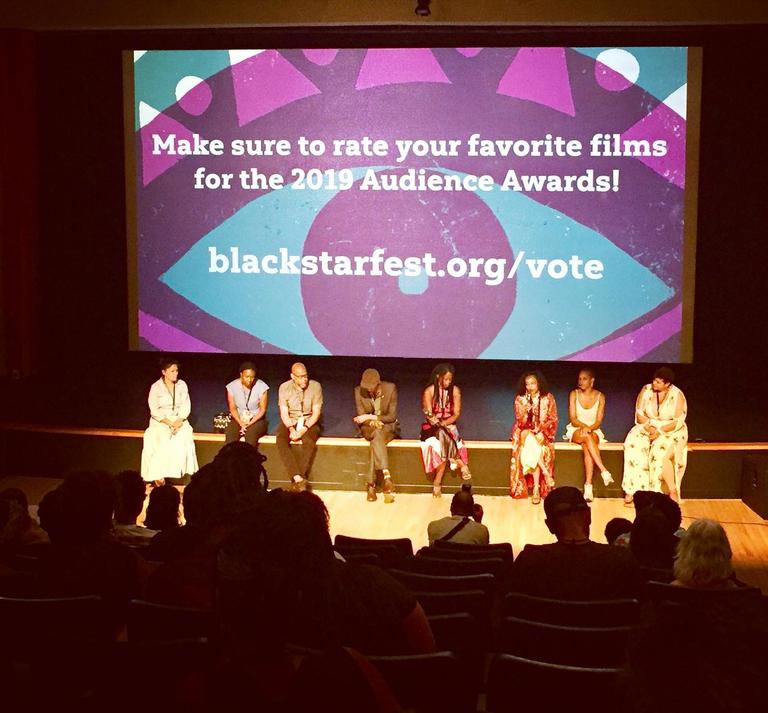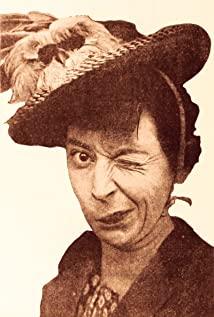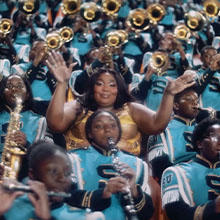Fall 2024
FAVS 356 Film Marketing
This course provides students with a variety of film and television marketing business strategies and creative skills, including publicity, press kits, advertising, trailers, poster design, film credits, box art, branding, licensing & merchandising, and distribution. As aspiring media entrepreneurs, students learn to professionally manage their careers whether in low-budget independent film or Hollywood blockbuster tracks via self-promotion and publicity.
FAVS 366 Video Production for Social Change
This video production course emulates a professional production environment where student teams, under the instructor’s supervision, produce effective pieces for local community-based non-profit organizations. Students will assess clients’ goals, develop a creative concept and strategy, and a statement of work. Developing professionalism and collaboration, students will see their work reach beyond the classroom, speaking to broad and specific audiences.
FAVS 399 Documentary Film Editing
This three-credit course focuses on the art and craft of editing a documentary film. We will study editing theory, current trends in documentary, ethical considerations, how to shape documentary stories, and how to approach different modes of documentary storytelling. We will also discuss workflow, incorporating archival material, and using sound and visual effects. The course primarily uses Adobe software.
FAVS 399 Writing Short Screenplays
This course explores the art and craft of the screenplay with a focus on writing short films. We'll study exceptional screenplays, discuss the major screenwriting texts and teachers, and practice a range of story structures. Students will write every week and build their own sustainable Creative Practice. By the end of the course, students will complete a 1-minute screenplay, a 2-minute screenplay, a 5-minute screenplay, and two drafts of a Final Project of 7-10 minutes.
FAVS 399 Color Correction
The Art and Technique of Color Correction will further your artistic skills, whether you're a cinematographer, editor, or director, and allow you to apply those skills to the grading process, making your finished image stand out with a cinematic and polished look.
You will be using the Blackmagic Design DaVinci Resolve Mini Panel to enhance your skills and quickly master the tricks of the trade. Raw footage will be provided for exercises and learning material but, I encourage you to bring your own footage and projects to class.
FAVS 399 Elections, Issues, and Films
Students explore fiction and non-fiction films that reflect major concerns during an American presidential election year. These concerns connect to the foundational mythology of American democracy and are reflected in issues such as health care, lobbies, immigration reform, climate change, surveillance, and civil and human rights. Films include James DeMonaco’s The Purge: Election Year, Raoul Peck’s I Am Not Your Negro, Laura Poitras’ Citizen Four, Ava DuVernay’s 13th, and Jose Antonio Vargas’ Documented.
FAVS 399 Visual Effects
This course introduces Visual Effects from the filmmaker’s perspective. It provides a comprehensive guide to conceiving, designing, budgeting, planning, shooting, and reviewing VFX, from pre-production through post-production, as well as learning techniques by using DaVinci Fusion lesson plans. This course features lectures, discussions, and hands-on demonstrations. This course introduces Visual Effects from the filmmaker’s perspective. It provides a comprehensive guide to conceiving, designing, budgeting, planning, shooting, and reviewing VFX, from pre-production through post-production, as well as learning techniques by using DaVinci Fusion lesson plans. This course features lectures, discussions, and hands-on demonstrations.
FAVS 431 Advanced Cinematography
This course builds on the foundation of FAVS 331 and explores advanced techniques in lighting and post-production (color correction). Where cinematography focuses on cinematography from the perspective of film (celluloid), Advanced Cinematography explores digital cinematography, its advantages and limitations.
Spring 2024
FAVS 399 Elections, Issues, and Films
In this class we’ll explore fiction and non-fiction films that reflect major concerns during an American presidential election year. These concerns connect to the foundational mythology of American democracy and are reflected in issues such as health care, lobbies, immigration reform, climate change, surveillance, and civil and human rights. Films include James DeMonaco’s The Purge: Election Year, Raoul Peck’s I Am Not Your Negro, Laura Poitras’s Citizen Four, Ava DuVernay’s 13th, and Jose Antonio Rodriguez’s Documented.
FAVS 399 Writing Short Screenplays
This course explores the art and craft of the screenplay with a focus on writing short films. We'll study exceptional screenplays, discuss the major screenwriting texts and teachers, and practice a range of story structures. Students will write every week and build their own sustainable Creative Practice. By the end of the course, students will complete a 1-minute screenplay, a 2-minute screenplay, a 5-minute screenplay, and two drafts of a Final Project of 7-10 minutes.
Fall 2023
FAVS 399 Podcasting: Audio Storytelling
In this class, students will learn how to develop and produce a podcast step-by-step. From writing and casting to recording and editing, students will be responsible for the concept and completion of two episodes.
Professor Amanda Kraus (she/her)
Monday | 10:30am-1:10pm | AB 1005
Spring 2023
FAVS 378 Web Series
A production course that explores the creative and logistical process of creating a fiction series for the web. Production techniques for web series will be explored, including permissions, contracts, and budgets for web development. The course will consider and study successful web series and explore contemporary discussions and professional organizations centered on web series.
Professor Susan Kehoe (she/her)
Wednesday | 10:30am-1:10pm | IN 233
FAVS 399 Color Correction
The Art and Technique of Color Correction will further your artistic skills, whether you're a cinematographer, editor, or director, and allow you to apply those skills to the grading process, making your finished image stand out with a cinematic and polished look.
You will be using the Blackmagic Design DaVinci Resolve Mini Panel to enhance your skills and quickly master the tricks of the trade. Raw footage will be provided for exercises and learning material but, I encourage you to bring your own footage and projects to class.
Professor Russell Santos (he/him)
Thursday | 1:30pm-4:10pm | AB 2001
FAVS 399 Visual Effects
This course introduces Visual Effects from the filmmaker’s perspective. It provides a comprehensive guide to conceiving, designing, budgeting, planning, shooting, and reviewing VFX, from pre-production through post-production, as well as learning techniques by using DaVinci Fusion lesson plans. This course features lectures, discussions, and hands-on demonstrations. This course introduces Visual Effects from the filmmaker’s perspective. It provides a comprehensive guide to conceiving, designing, budgeting, planning, shooting, and reviewing VFX, from pre-production through post-production, as well as learning techniques by using DaVinci Fusion lesson plans. This course features lectures, discussions, and hands-on demonstrations.
Professor Russell Santos (he/him)
Tuesday | 7:20pm-10:00pm | AB 2001
FAVS 433 Advanced Sound
Students will learn about advanced fundamental theory, tools, and techniques needed to create and/or implement sound for film. We will utilize the industry standard software Pro Tools. Students will learn nonlinear sound editing, digital audio processing, frequency manipulation, synthesized sound techniques and mixing. We will focus on the power of sound and the contributions it can make not only in enhancing the visuals of a film but in contributing to telling the story within itself. This is a hybrid course, occurring online with in-person meetings.
Professor Amanda Kraus (she/her)
Thursday | 10:30am-1:10pm | AB 2001
Fall 2022
FAVS 366 Video Production for Social Change
Professor Rebekah Wingert-Jabi
Wednesday 1:30-4:10pm | AB 1007
This course reflects a professional production environment where student teams, under the instructor’s supervision, produce effective pieces for local community based non-profit organizations. Students will learn the business of working with a real-world nonprofit client and storytelling skills that advance the client mission. Beginning with the discovery process, students will engage the client in assessing their needs and goals for producing a video. They will develop a creative concept/strategy, a budget, and a statement of work/contract. Small teams will then produce their client project as they learn the storytelling strategies that engage by connecting with an audience.
FAVS 377 Interactive Storytelling for Social Change
Professor G Chesler
Monday 1:30-4:10pm | Online
Students study the craft of interactive and transmedia storytelling while producing media projects for impact and action. Transmedia is a way of telling stories across media platforms, for both fiction and non-fiction. This allows creators to engage television and film audiences for greater impact. Students will study interactivity as a readily used marketing tool in the film and television industry.
FAVS 399 Curating and Programming for the Moving Image
Professor KJ Mohr
Thursday 1:30-4:10pm | Hybrid RSCH 201 and Online
This undergraduate seminar explores the rich and often overlooked history and current practice of independent exhibition of moving images. Through reading, writing, viewing, discussion and professional guest visits, students engage both critically and practically with ideas of venue and context, programming theory, curatorial ethics, distribution, and promotion for film and video. Student curators will learn to program, plan, promote, budget for, collaborate on, and host screenings, working with archives, distributors and artists, calling for submissions of work, and crafting programs that explore themes and subjects of interest to them. Events will include off-site screenings, on-campus programs and virtual presentations. This course is created and taught by KJ Mohr, a festival programmer and moving image curator. Mohr has served as the Director of Programming for the Tampa International Lesbian and Gay Film Festival; Programmer for the Maryland Film Festival's three-screen art house cinema, the Parkway; Film Curator for National Museum of Women in the Arts in Washington DC; curator of the Conversations at the Edge series at the Gene Siskel Film Center; and she worked with Women in the Director’s Chair in Chicago for many years, in addition to three decades of international experience in microcinema production. This is a hybrid course, occurring online with some in-person meetings and events.
Spring 2022
FAVS 399 Radical Camera
This theory and practice course explores experimental film practice in abstract film forms for personal, socio-political, and artistic expression. We focus on American experimental film traditions in LGBTQ, Black, and Feminist independent cinema. Students will also research a filmmaker and tradition aligned with their own interests. Creative assignments are designed to expand students’ voice and expression as cinematic artists. Projects include making several short films, film exercises, presenting a research assignment, and short writing exercises. The course is designed through anti-racist, feminist, trans, and queer philosophies. Course content includes some films and performances that are explicitly sexual, including nudity. Some films express moments of violence or trauma.
Professor Giovanna Chesler (they/them)
Monday | 4:30 - 7:10pm | Online
FAVS 399 Color Correction
The Art and Technique of Color Correction will further your artistic skills, whether you're a cinematographer, editor, or director, and allow you to apply those skills to the grading process, making your finished image stand out with a cinematic and polished look.
You will be using the Blackmagic Design DaVinci Resolve Mini Panel to enhance your skills and quickly master the tricks of the trade. Raw footage will be provided for exercises and learning material but, I encourage you to bring your own footage and projects to class.
Professor Russell Santos (he/him)
Thursday | 4:30 - 7:10pm | AB 2001
Fall 2021
FAVS 399 Curating and Programming for the Moving Image
Professor KJ Mohr
Thursday | 1:30-4:10pm | Hybrid
Art Building Room AB 1007
This undergraduate seminar explores the rich and often overlooked history and current practice of independent exhibition of moving images. Through reading, writing, viewing, discussion and professional guest visits, students engage both critically and practically with ideas of venue and context, programming theory, curatorial ethics, distribution, and promotion for film and video. Student curators will learn to program, plan, promote, budget for, collaborate on, and host screenings, working with archives, distributors and artists, calling for submissions of work, and crafting programs that explore themes and subjects of interest to them. Events will include off-site screenings, on-campus programs and virtual presentations. Course is created and taught by KJ Mohr, a festival programmer and moving image curator. Mohr has served as the Director of Programming for the Tampa International Lesbian and Gay Film Festival; Programmer for the Maryland Film Festival's three-screen art house cinema, the Parkway; Film Curator for National Museum of Women in the Arts in Washington DC; curator of the Conversations at the Edge series at the Gene Siskel Film Center; and she worked with Women in the Director’s Chair in Chicago for many years, in addition to three decades of international experience in microcinema production. This is a hybrid course, occurring online with some in-person meetings and events.
FAVS 399 Laughing Matters: A Century of Film Comedy
Professor Rob Farr
Friday | 10:30am-1:10pm | In-person
Art Building Room AB 1007
Throughout this course we will be analyzing comedy, why it works, and what it says about the culture that produced it. However, we will strive to heed Mr. Benchley’s gentle witticism and not lose sight of the primary purpose of humor, which is to provoke the joyful response we call laughter.
This is a special topics course which takes an analysis-history-theory approach. Slapstick, satire, screwball, musical comedy, rom-com, and raunch are just some of the flavors of film comedy that have flashed across screens over the past 125 years. This course will survey the history of cinematic comedy from Mack Sennett’s Keystone Cops to present-day comedies by Greta Gerwig and Jordon Peale. While we will be looking at films from the 19th Century to the present, our approach will be non-chronological.
Comedy is always a reflection of the culture and time it was produced. We’ll explore a wide range of comic genres from different eras and parts of the world, focusing on their aesthetic, historical, and cultural aspects as well as their contributions to the evolution of the art form. As such, issues of gender, race and ethnicity on screen will be considered.
The course will enable students to comprehend the evolution of the history of comedy in order to connect with the “outside forces” (i.e., the political and economic institutions, key figures, historical events and social issues) that produced that comedy and the films that commented upon it.
Laughing Matters promises to be a journey full of discoveries and surprising revelations.
FAVS 433 Advanced Sound
Professor Amanda Kraus
Monday | 10:30am-1:10pm | Hybrid
Art Building Room AB 2001
Students will learn about advanced fundamental theory, tools, and techniques needed to create and/or implement sound for film. We will utilize the industry standard software Pro Tools. Students will learn nonlinear sound editing, digital audio processing, frequency manipulation, synthesized sound techniques and mixing. We will focus on the power of sound and the contributions it can make not only in enhancing the visuals of a film but in contributing to telling the story within itself. This is a hybrid course, occurring online with in-person meetings.
FAVS 399 Music Video Production
Professor Russell Santos
Thursday | 1:30-4:10pm | In-person
Art Building Room AB 1007
This course is a complete, step by step guide to creating a music video. We will cover: creating a music video treatment, producing and directing, casting and locations, shooting and editing, learning VFX and color correction, and delivering a music video to MTV and YouTube. If you listen to music and you imagine stories that will make an awesome music video to share with others... then this class is for you.
Spring 2021
FAVS 399 Afrofuturism and Their Kin
Tuesdays, 1:30-4:10pm
Online
Prof. Jusu
Students will explore the history and contexts of Afrofuturism, which has roots in African American science fiction and now refers more broadly to literature, music, and visual art that explore the African diasporas experience. The course will focus on creative aspects, including short script-writing, filmic storytelling, and online discussion with working filmmakers.
FAVS 377 Interactive Storytelling for Social Change
Tuesdays, 1:30-4:10pm
Online
Prof. Chesler
Interactive Storytelling for Social Change explores the craft of storytelling for impact and social justice. Often called “transmedia” this craft moves stories across media platforms while expanding the storyworlds of film and television series. Interactive storytelling is nothing new. Transmedia can include a book that extends the life of a character in a television show (like Laura Palmer's Diaryconnected to Twin Peaks). More recent examples use social media, including Facebook Twitter, Tubmlr, Tik Tok, Snapchat, and Instagram to move stories and social justice causes forward in the hands of the audience.
We will consider a variety of projects and causes that employ this strategy, and the jobs available in this field – from Transmedia Producer to Impact Producer. Using a cause you care about, you will develop projects that test out strategies and platforms while exploring and expanding your creative voice and tool kit.
FAVS 460 Advanced Video Editing
Thursdays, 1:30-4:10pm
Online and AB 2001
Prof. Kraus
This course will instruct students on the theories, techniques and technologies pertaining to video editing for fiction and documentary films, as well as commercials. The course will combine lectures, discussions, and demonstrations with hands on projects.
FAVS 331 Cinematography
Mondays, 10:30am-1:10pm
Online and AB 1007
Prof. Santos
This course aims to recreate a professional camera department environment. By the end of the course, students should be able to understand and perform the function of first assistant cameraperson or second assistant cameraperson on a camera crew. Students will understand the history, function, art, craft, and science of cinematography.



